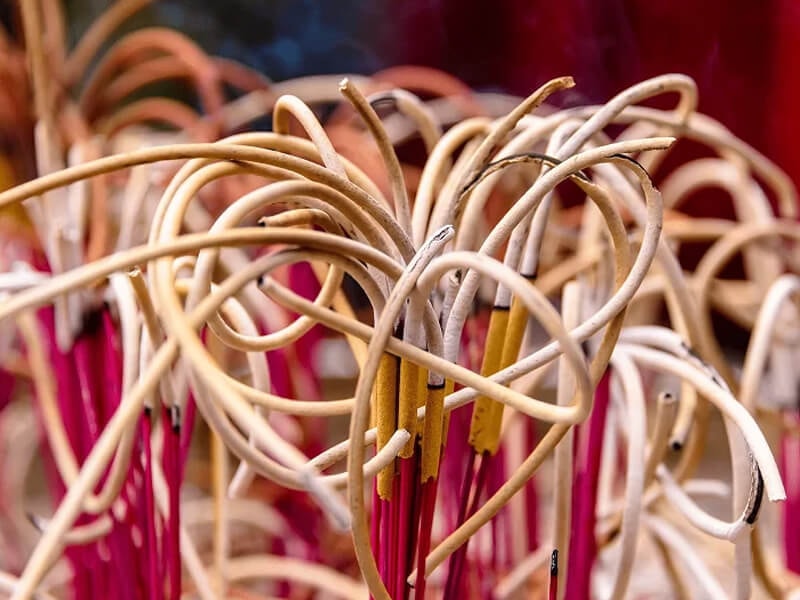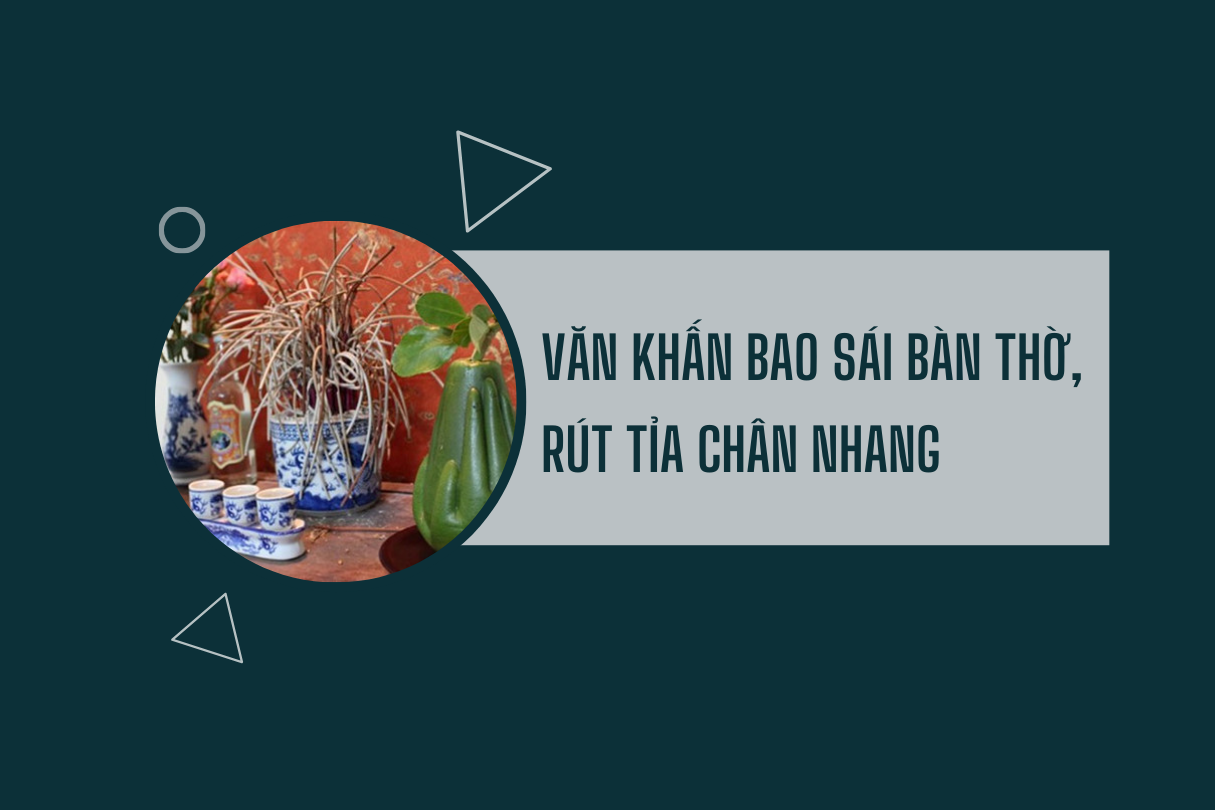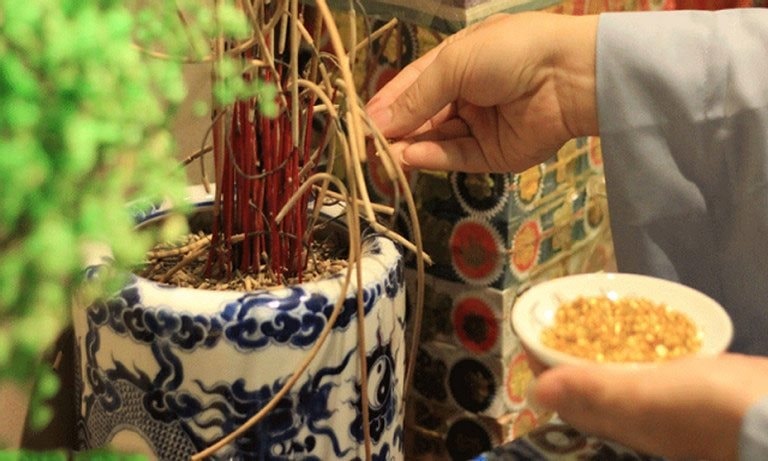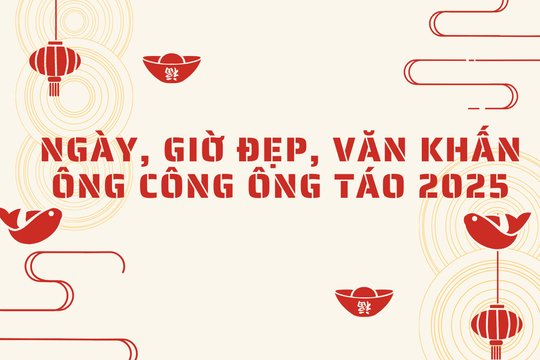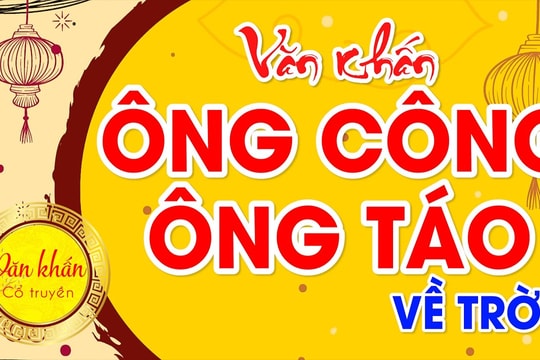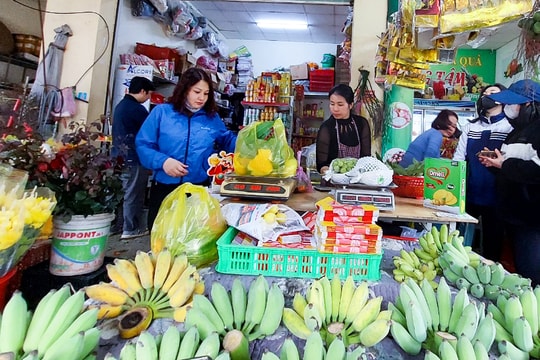What should I do after worshiping the Kitchen Gods?
After worshiping the Kitchen Gods, what should the homeowner do to prepare for Tet?
According to Vietnamese tradition, on the 23rd day of the 12th lunar month, the Ong Cong Ong Tao ceremony is held, also known as the day to send Ong Tao off to heaven.
According to legend, on this day, the Kitchen God will ride a carp to heaven to report to the Jade Emperor about the events that have occurred in the family over the past year. Then, he will return to earth on New Year's Eve to continue his duty of looking after the family's hearth.
- What should I do after worshiping the Kitchen Gods?
- 1. Wait for the incense to burn out
- 2. Burning votive paper
- 3. Releasing carp
- 4. Clean and cover the altar
- 5. Enjoy the offerings
- Things to do from the 23rd to the 30th of Tet when Tao Quan is away
- 1. Clean the house
- 2. Home repair
- 3. Prepare offerings and gifts
- 4. Tet shopping
- 5. Make traditional dishes
- 6. New Year's Eve Offering
- 8. Taboos during the Kitchen God's absence
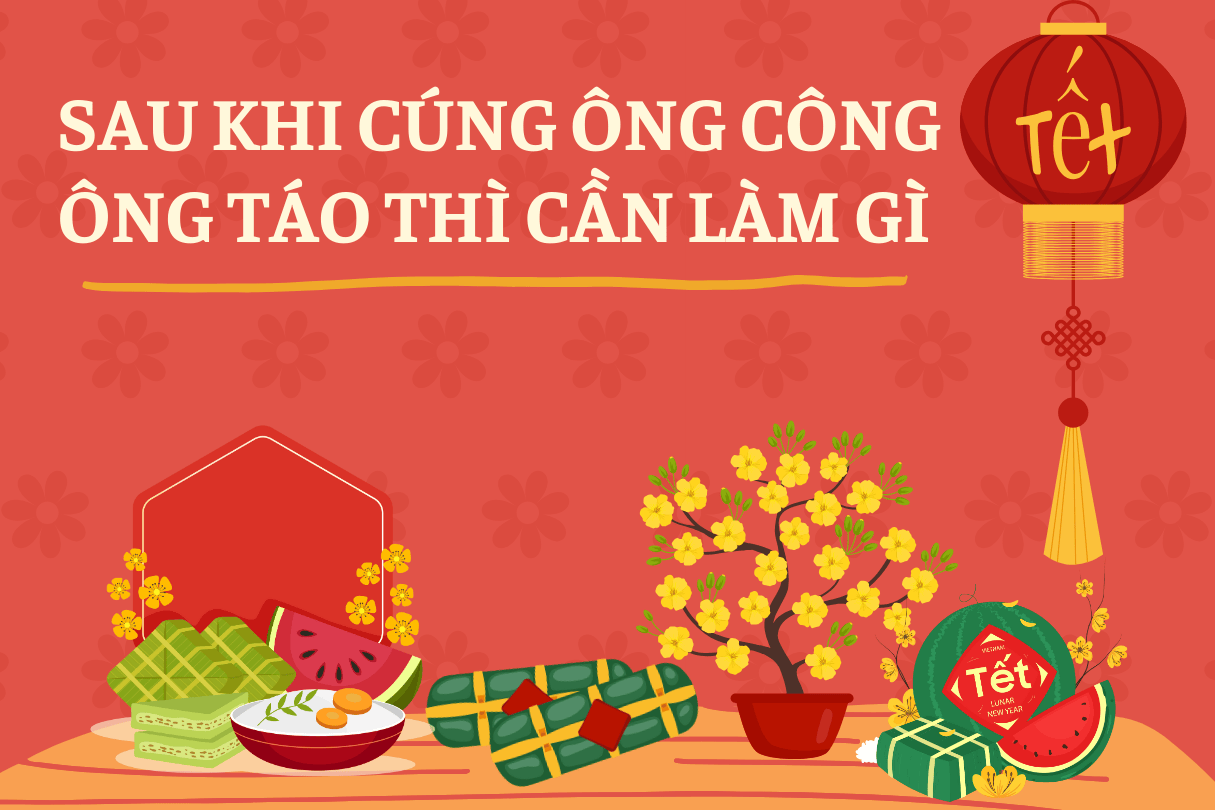
What should I do after worshiping the Kitchen Gods?
The ceremony to worship the Kitchen Gods is an important traditional ritual in Vietnamese culture, expressing gratitude and respect for the gods who govern the kitchen and the family. After completing the ceremony, to ensure the full spiritual meaning, the family needs to do the following:
1. Wait for the incense to burn out
First, after offering incense and praying, the homeowner needs to wait for the incense to burn out. Normally, the incense burned in the ceremony will burn about 2/3 or almost all. Waiting for the incense to burn out shows respect and patience, and is also the time for the gods to "enjoy" the offerings that the family has made.
During this time, everyone in the family can sit quietly, reflect on the past and pray for good things in the new year.
2. Burning votive paper
Burning votive papers is an indispensable step in the Tao Quan worship ceremony. The family will burn votive papers, paper money and other offerings to send Ong Cong Ong Tao to heaven. When performing this ceremony, it is necessary to prepare a safe area to burn the votive papers and pay attention to cleaning up the ashes after burning.
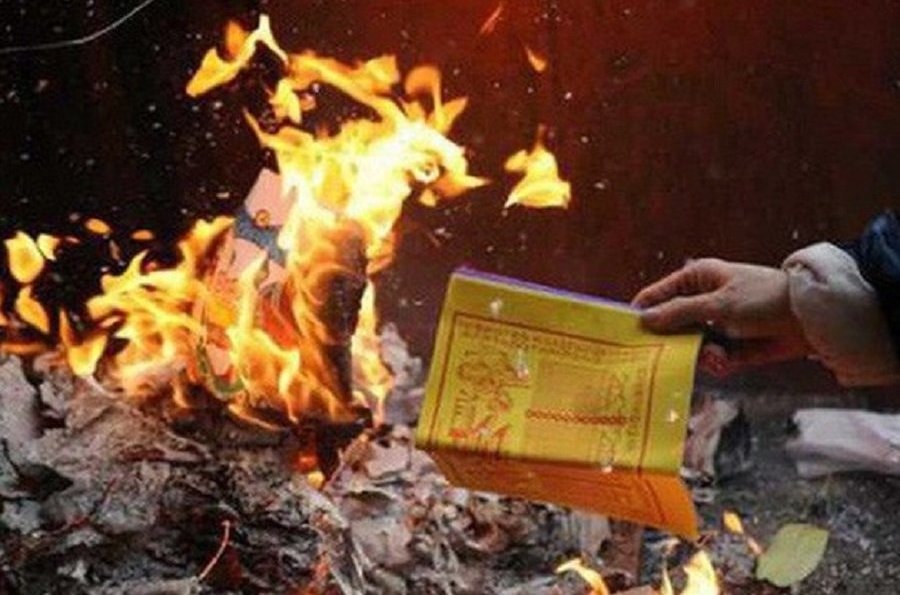
3. Releasing carp
An indispensable part of the Kitchen God worshiping ceremony is releasing carp. Carp is considered the vehicle to take Kitchen God to heaven. After the worshiping ceremony, the family will bring the carp to a river, lake or place with clean water to release. This action not only has spiritual meaning but also shows the spirit of humanity and love of nature.

When releasing the fish, people often say a small prayer, hoping that the carp will be healthy, swim fast, and take the Kitchen God to heaven smoothly.
4. Clean and cover the altar
After completing the rituals, you can proceed to clean the altar. Wipe the altar, change the water and arrange the objects on the altar neatly.
5. Enjoy the offerings
Finally, the family can enjoy the offerings together. According to tradition, the offerings after being presented will be considered as "blessings" given by the gods. Eating the offerings not only has spiritual significance but is also an occasion for family members to gather, reunite, share joy and hope for a peaceful and happy new year.
Completing these tasks not only makes the Tao Quan worship ceremony more meaningful but also contributes to maintaining and promoting the traditional cultural values of the Vietnamese people.
Things to do from the 23rd to the 30th of Tet when Tao Quan is away
1. Clean the house
When the Kitchen God is absent, this is the right time to clean the house, rearrange the living space, and prepare to welcome the new year.
Every corner of the house was cleaned, from the family altar, living room, bedroom, to the kitchen and garden. Old, broken and unused objects were also replaced with new ones, creating a neat and bright space.
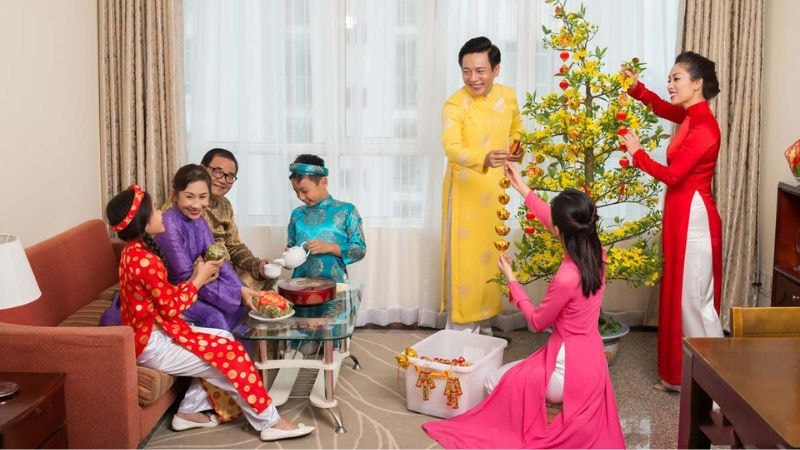
This is also the time when peach trees, apricot branches, or kumquat pots are carefully selected to bring home, adding spring colors to the home. Lanterns, cakes, candies, and other decorative items gradually appear, brightening up the space, signaling that Tet is approaching very soon.
2. Home repair
According to folk belief, doing these things while the Kitchen God is away is a way to avoid violating his management.
People take advantage of the opportunity to repaint walls, repair roofs or refurbish furniture. However, repairs should be done quietly, avoiding making noise and disturbing neighbors, to maintain harmony in the community.
3. Prepare offerings and gifts
Along with cleaning and repairing, every family is busy preparing offerings and gifts for important year-end rituals.
From the New Year's Eve feast full of traditional dishes, to the sacred New Year's Eve ceremony, everything is carefully prepared to express gratitude to heaven, earth, and ancestors and to pray for a peaceful and lucky new year.
4. Tet shopping
The atmosphere of the Tet market these days becomes more bustling than ever. People go shopping for food, candy, new clothes, or fresh flowers to display on the altar. It is not only a material preparation but also a way to send wishes for a new year full of abundance and prosperity.
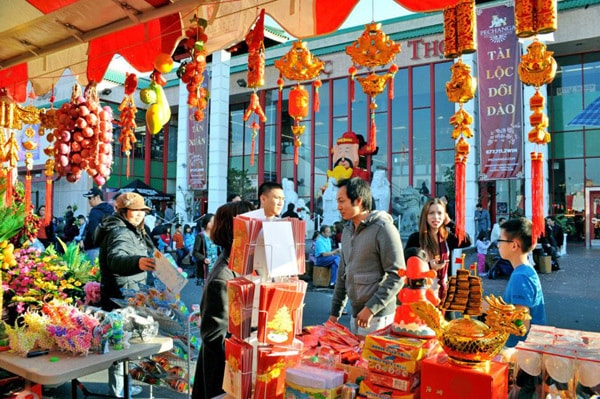
5. Make traditional dishes
Traditional dishes such as banh chung, banh tet, jam, and pickled onions also begin to be made, wrapped in the joy of family reunion.
6. New Year's Eve Offering
On the 30th of Tet, families gather together to pay their respects at the end of the year, a ritual to close the old year and prepare to welcome the new year. Their devotion is shown through a neat tray of food, solemn prayers, and a warm atmosphere of reunion.
This is also the time when the Kitchen God returns after completing his mission in heaven. Offerings to the Kitchen God such as fruits, candies, and especially carp are prepared to welcome the return of the kitchen god in the hope of bringing blessings to the family.
8. Taboos during the Kitchen God's absence
During this time, families are also careful to avoid committing taboos. Things like arguing, breaking things or borrowing money are avoided, as folk beliefs believe they can bring bad luck for the new year.
From the 23rd to the 30th of Tet is a busy but meaningful time, when everyone prepares to welcome a new year with many hopes. Every task, from cleaning the house, repairing, preparing offerings to making traditional dishes, is a way to preserve and convey the beauty of Vietnamese Tet culture. And when Ong Tao returns, everything is ready to welcome a new year of peace and happiness.

